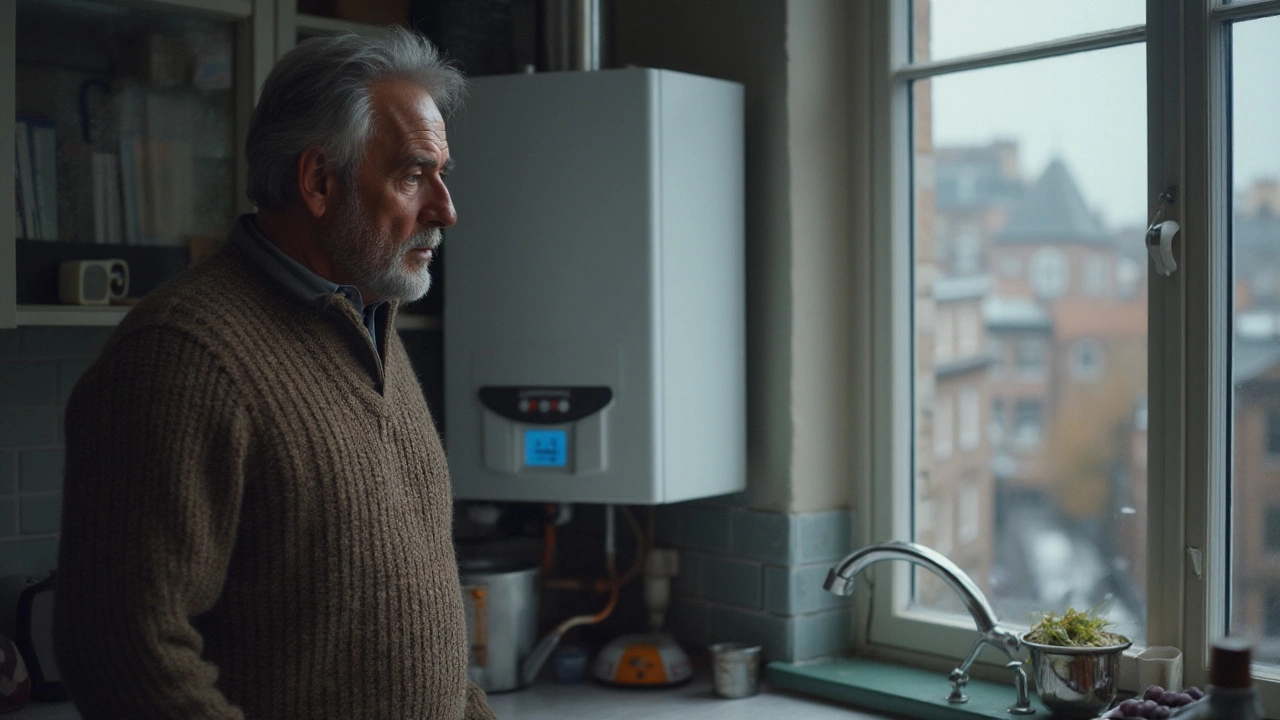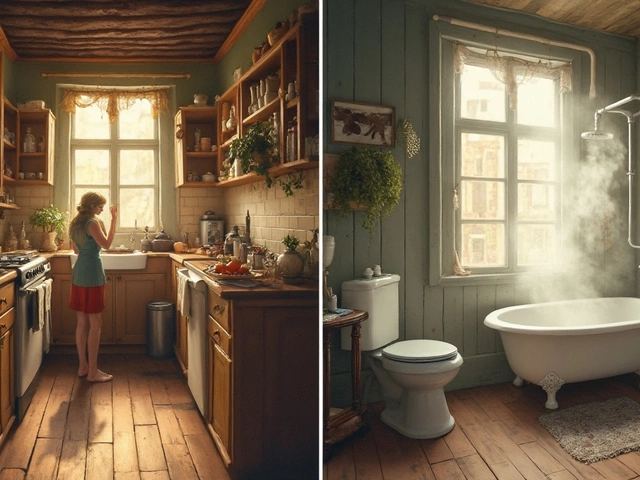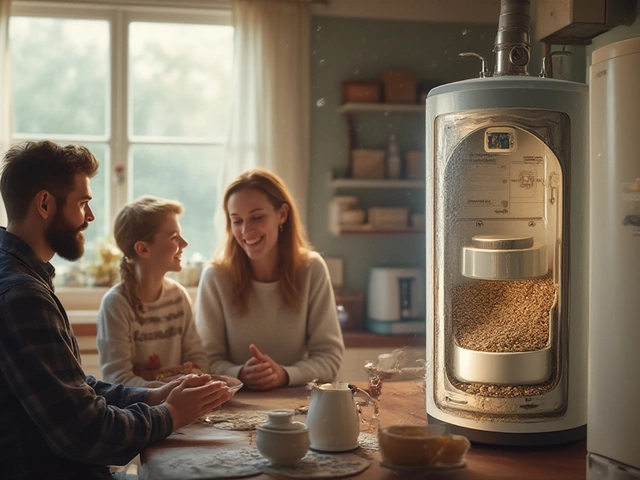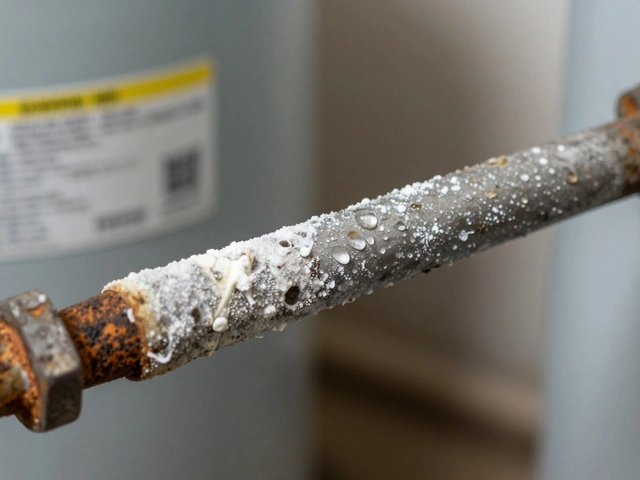The moment you step into a cold shower, cursing the day you neglected your water heater's maintenance schedule, you're reminded how much we rely on these underappreciated appliances. It's a universal understanding that hot water is a modern necessity, and when it vanishes without a trace, you feel every bit of that absence. Whether trying to scrub the remnants of a hard day away or whipping up your legendary mushroom risotto with hot water on standby, a stubborn heater can bring things to a screeching halt.
So, what's holding your hot water heater hostage? Is it an electrical quirk or a gas supply hiccup? Maybe the issue lies in a tiny valve or a sneaky sediment build-up. This article isn't just a list of what-ifs but a practical guide to understanding, diagnosing, and managing your heater's stubbornness. With a mix of technical insights and easy-to-follow tips, we're here to shed light on your hot water woes.
- Understanding Your Hot Water Heater Basics
- Common Electrical Issues and Fixes
- Troubleshooting Gas Water Heaters
- Maintenance Tips to Prevent Future Problems
Understanding Your Hot Water Heater Basics
Your hot water heater might seem like the silent workhorse of your home, but it serves a crucial role in your daily life, lurking out of sight but never truly out of mind. This piece of engineering mastery heats and stores water until you're ready to take your next steamy bath or tackle a stack of dishes. There are two primary types: electric and gas. Electric water heaters depend on heating elements to warm the water, while gas water heaters use a burner to do the job. Identifying which kind you have is the first step to understanding any issues it might face.
To delve deeper, let’s talk about electric water heaters first. These usually have two distinct heating elements, each with its thermostat. If your heater isn’t behaving normally, your first move should be to check these thermostats. They regulate the temperature of the water by controlling when each element activates. If something is off, it could be the thermostat itself that needs adjustment, or the heating element could be faulty. Remember that an older water heater accumulates sediment at the tank's bottom, which can reduce efficiency and potentially cause damage. Flushing the tank regularly helps maintain it in peak form.
On the other hand, gas water heaters have their quirks. They rely on a pilot light or ignition system to fire up the burner. If your main complaint is a lack of hot water, the pilot light might have gone out, or the thermocouple, which is a sensor that cuts the gas supply when it detects that the pilot light is out, might be malfunctioning. An important note when dealing with gas: always prioritize safety, and give proper attention to ventilation and unobstructed air flow.
According to the U.S. Department of Energy, water heating accounts for around 18% of your home's energy use, which makes it the second-largest expense behind heating and cooling your living space.
It’s imperative to know that both types require routine care. For instance, a faulty pressure relief valve can cause a water heater to become unsafe. Use an annual maintenance schedule to check the valve after you know how the heater operates. Whether you have an electric or gas system, understanding these basics can give you an edge in the fight against cold showers. The knowledge doesn’t just save you stress; it can save you costly repair bills, allowing you to spend on something more enjoyable, like that spa day you’ve been putting off.

Common Electrical Issues and Fixes
When your hot water heater stalls and you're left with nothing but cold water, the culprits are often electrical problems. Diagnosing these issues can sometimes feel a bit like deciphering an ancient runes, especially if you’re not familiar with appliance mechanics. For starters, ensure that your water heater's power source isn't the cause of glitch; something as insignificant as a tripped circuit breaker can silently shut down operations. Take a visit to your breaker box and inspect the switch linked to your water heater. Isn't it always the way that flipping a simple switch can render you feeling triumphant before the day even begins?
Another frequent offender is a blown fuse. A water heater's fuse, though hardy, isn't immune to wear and tear. Constant overheating or old wiring can push it past its breaking point. If you suspect this might be the issue, carefully replace the fuse with one that matches the requirements — don't be tempted to experiment here! If you're not confident poking around high-voltage circuits, it's worth calling in a professional. As Tom Kelly, a seasoned plumber, once remarked,
"Amateurs work for excitement but professionals work for safety."Never underestimate the importance of ensuring that every bolt is in its right place and every wire is properly insulated, because safety always trumps expedience.
Another area often overlooked is the thermostat settings on your water heater. Just as you adjust your home's HVAC system, your water heater has an internal thermostat that controls the temperature of output water. Oftentimes, it may be as simple as adjusting the dial to reset the functionality of the heater. Be careful, though, not to go above 120°F (49°C), as higher settings not only increase your utility bills but pose a real risk of scalding. Lowing the thermostat by just a few degrees can make a noticeable difference in efficiency and safety, without sacrificing your comfort under a warm shower.
For those nifty water heater repair solutions at your fingertips, always have a multimeter handy. This little device is invaluable for testing circuits and confirming whether electrical components like the thermostat or heating elements are receiving power as they should be. Dive into your oyster of electricity by ensuring everything aligns according to specification—most household water heaters operate at 240 volts. Appliance troubleshooting can become easier when you follow a methodical path of elimination, crossing out potential problems one by one.
Understanding these complicated yet common electrical factors can not only help you diagnose current problems but also prevent future disruptions. A survey of residential maintenance points to the fact that a significant proportion of homeowners — nearly 60 percent — overlook regular checks on their appliances. This negligence often leads to premature breakdowns, resulting in unnecessary expenses. Keeping a preventive maintenance schedule can ensure long-term reliability and longevity of your water heater. Whether it’s checking the electrical panel, regularly inspecting wires for wear and tear, or proactively consulting with an expert, forging the path of preparedness is no stranger to success.

Troubleshooting Gas Water Heaters
Gas water heaters are the lifeline of many households, providing warmth and comfort. When they falter, though, it seems like your entire day screeches to a halt. Before diving into deep fixes or calling in the pros, it’s crucial to understand some basic workings of these systems. A gas water heater relies heavily on a consistent pilot light, thermocouple functionality, and gas flow regulation. If any of these elements are off, hot water heater issues are inevitable. This relationship is a dance of heat and mechanics, one that thrives on the balanced performance of each component. In many scenarios, checking these fundamentals first can save time and money, not to mention the hassle of enduring a variety of unwanted outcomes like tepid showers or no hot water at all.
Addressing the pilot light is typically the first step. A strong, blue flame indicates that your pilot is functioning correctly. A weak or non-existent flame often suggests a thermocouple problem. This small but mighty sensor controls gas flow to the pilot light itself; if it detects that the pilot isn’t lit, it cuts the gas off, preventing leaks. To check if it's a thermocouple mishap, try relighting the pilot. If it doesn't hold, replacement or repositioning of the thermocouple might be necessary. This is certainly one point where user manuals come in handy since they usually provide basic troubleshooting tips related to the pilot and thermocouple dynamics.
"When dealing with gas water heaters, always prioritize safety. A faulty thermocouple is often the simplest and safest fix to undertake yourself," notes a resource from Consumer Reports, highlighting the importance of self-awareness in home repairs.
Another common culprit is the gas supply itself. It's worth checking the gas valve on the water heater to ensure it is fully open. A partially closed valve would starve the heater of necessary gas, affecting its ability to produce hot water. If you're handy with tools, listening out for a hissing sound near the heater can be self-evident of a gas leak. Important here is to remember your limits—if you're not too confident, it's probably safer and wiser to call a professional to avoid any hazardous outcomes
Cleaning the Burner and Pilot Assembly
Sometimes it’s the simpler issues that cause significant headaches, like dirt buildup in the burner or pilot assembly. This problem isn't uncommon due to the various dust and debris that can acclimate around these parts over time. Cleaning here involves shutting off the heater’s gas supply, disconnecting the burner, and meticulously cleaning any grime from both the burner and the pilot tube. Using a soft brush or compressed air can effectively remove obstructive elements restoring proper operation. If you notice this buildup happening more frequently, considering the environment around the heater can be illuminating—are you keeping it in a dusty basement or near a laundry room? Environmental factors can make a significant difference.
| Problem | Possible Cause |
|---|---|
| No Hot Water | No pilot flame, thermocouple malfunction |
| Slow Heating | Dirty burner, insufficient gas supply |
| Pilot Light Outage | Air drafts, faulty thermocouple |
Bear in mind, the age of the heater plays a role as well. An older gas water heater may be less efficient or struggle more with gas regulation and control. If your heater is more than a decade old, its operational quirks could stem simply from age, and it could be time to consider an upgrade. Advanced models offer more efficiency and features that prolong the lifespan of the appliance. Don’t neglect these advancements as viable solutions to recurring problems. Upgrading might seem a costly upfront expense, but in the long haul, energy savings, reliability, and modern safety features can often justify the decision.
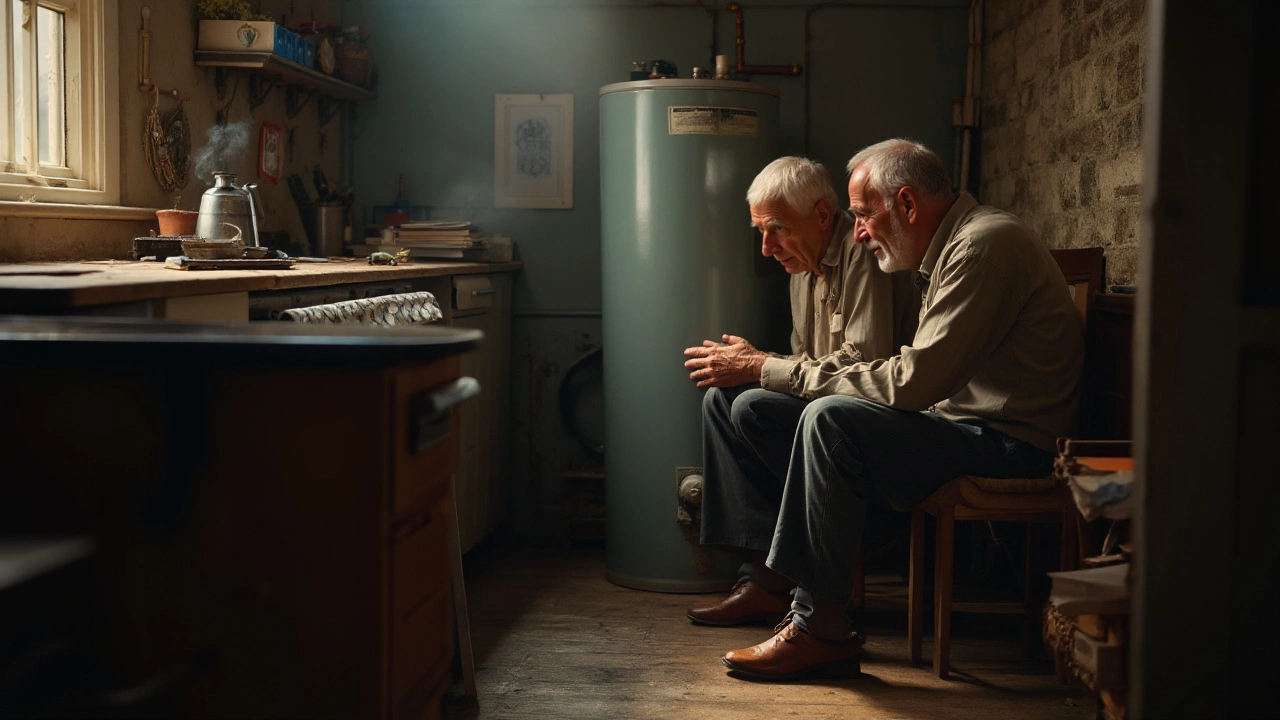
Maintenance Tips to Prevent Future Problems
Keeping your hot water heater in tip-top condition requires a proactive approach. Maintenance isn't just about preventing unexpected cold showers; it's about extending the life of a crucial home appliance, ensuring energy efficiency, and keeping utility bills in check. It turns out, simple routine checks and balances can save you from hefty repair costs. To start with, consider the fight against sediment build-up. Over time, mineral deposits can settle at the bottom of your water heater tank, making it harder for the system to heat the water effectively. This sediment layer acts as an insulator, compelling your heater to work overtime and consume more energy.
Aiming for an annual flush of your tank can help negate this problem. Start by turning off the appliance – an important safety measure that many overlook. Attach a hose to the drain valve and channel the water towards a safe drainage area. Once completed, refill the tank and you’ve already significantly improved your heater's efficiency. According to a study highlighted by Energy Star, regular maintenance can extend the life of your heater by 3 to 5 years.
"Routine maintenance isn't just a task; it's a commitment to sustainable energy use," remarks a publication by the U.S. Department of Energy.
Electrical water heaters demand their own set of checks. Routinely inspect the thermostat settings. Energy efficiency experts suggest keeping it at 120 degrees Fahrenheit to prevent scalding and reduce energy use by 5-10% annually. For gas water heaters, checking the pilot light is a must. Ensuring a clean and steady flame prevents unexpected shut-offs and maintains optimal performance. If you notice any irregular flames or frequent outbursts of the flame, it might necessitate calling in a professional. They say prevention is better than cure, and when it comes to your water heater, a little care goes a long way.
Don’t underestimate the power of a good insulation job. Insulating your heater’s tank and pipes directly affects how much energy is needed to heat water. Look for insulating blankets specifically designed for hot water heaters and wrap them around your tank to reduce heat loss by up to 25%. Always follow manufacturer guidelines when insulating, especially near thermostats and heating elements. Regular inspections of the anode rod, typically every three years, also ensure that your tank doesn't corrode from the inside out. The anode rod attracts corrosive elements, but if it wears fully, your tank may start to rust.
Finally, keep tabs on your appliance’s surroundings. Make sure it has adequate space for airflow, and check that it's not obstructed by clutter or sanitation concerns. Routine checks can identify early signs of damage, such as tiny leaks or unusual sounds. Scheduling professional inspections every couple of years allows for thorough evaluations and diagnostics that catch complex issues early. These combined efforts make for a more reliable heating system and a more comfortable household year-round. It’s a manageable commitment that rewards significantly in the long run.

